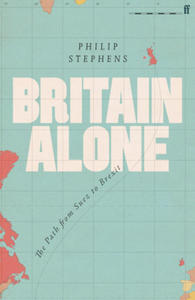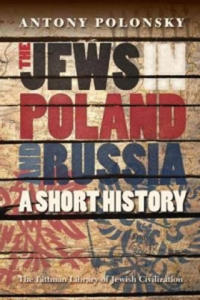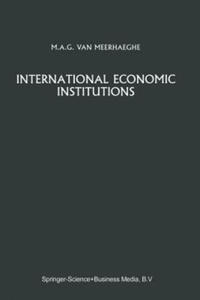libristo britain and european integration since 1945 4897587
- znaleziono 8 produktów w 4 sklepach
European Union since 1945 Longman Group
Inne 1
The European Union since 1945 provides a general survey of European intergration, from its emergence at the end of World War II to the negotiation of the Constitutional Treaty in 2004 and enlargement to Central and Eastern Europe. Adopting a chronological approach, the book examines the economic and political factors that have shaped the process of European Integration, and as a consequence the transfer of power away from member states, have been primarily the result of decisions taken by the member states themselves.Suitable for undergraduate courses on the EU taken as part of the European Studies, History, Politics, International Relations or Law degree.
Sklep: Albertus.pl
Britain Since 1945
Książki Obcojęzyczne>Angielskie>Humanities>History>Regional & national history>European history>British & Irish historyKsiążki Obcoj...
0x014e254c00000000
Sklep: Gigant.pl
Britain Since 1945
Książki Obcojęzyczne>Angielskie>Humanities>History>Regional & national history>European history>British & Irish historyKsiążki Obcoj...
0x0143d74c00000000
Sklep: Gigant.pl
Britain Alone Faber & Faber
Książki / Literatura obcojęzyczna
A magisterial and profoundly perceptive survey of Britain's post-war role on the global stage, from Suez to Brexit. 'Admirably lucid and measured, as well as studded with sharp pen portraits of the key players, Britain Alone gives us the fullest long-run political and diplomatic narrative yet of Britain's fateful, tragi-comic road to Brexit.'DAVID KYNASTON 'Philip Stephens has produced that rare thing - an instant classic. Britain Alone is the codebook we need to unravel the six and a half decades between Suez and Brexit, and Stephens is a master of historical codebreaking.'PETER HENNESSYHow might we celebrate Britain's undoubted strengths while accepting that we have slipped from the top table? How can we act as a great nation while no longer pretending to be a great power? How might we be European and global?In 1962 the American statesman Dean Acheson famously charged that Britain had lost an empire and failed to find a new role.Nearly sixty years later the rebuke rings true again. Britain's postwar search for its place in the world has vexed prime ministers and government since the nation's great victory in 1945: the cost of winning the war was giving up the empire. After the humiliation of Anthony Eden's Suez expedition, Britain seemed for a time to have found an answer.Clinging to its self-image as a great island nation, it would serve as America's best friend while acknowledging its geography by signing up to membership of the European Union. Never a comfortable balancing act, for forty years it appeared to work. In 2016 David Cameron called the Brexit referendum and blew it up.Award-winning journalist Philip Stephens paints a fascinating portrait of a nation struggling to reconcile its waning power with past glory. Drawing on decades of personal contact and interviews with senior politicians and diplomats in Britain, the United States and across the capitals of Europe, Britain Alone is a vivid account of a proud nation struggling to admit it is no longer a great power. It is an indispensable guide to how we arrived at the state we are in.
Sklep: Libristo.pl
Pochodne instrumenty kredytowe - Izabela Pruchnicka-Grabias
Książki & Multimedia > Książki
Opis - Książka, posiadająca istotne walory praktyczne, jest pierwszą pozycją polskiej autorki w tak kompleksowy sposób analizującą nie tylko istotę funkcjonowania kredytowych instrumentów pochodnych, ale również modele ich wyceny, doskonalenie których autorka słusznie uznaje za kluczowe dla rozwoju tego rynku. Niewątpliwą zaletą opracowania jest mnogość przykładów, przeprowadzających Czytelnika przez kolejne etapy szacowania wartości omawianych struktur i tworzących idealną bazę dla zrozumienia konstrukcji tych złożonych produktów. Prof. zw. dr hab. Janusz Soboń Publikacja stanowi cenne kompendium wiedzy zarówno dla praktyków rynku finansowego, jak i studentów oraz słuchaczy studiów podyplomowych i doktoranckich, jak również dla pracowników nauki zainteresowanych wdrażaniem metod kwantyfikacji ryzyka kredytowego w praktykę. Prof. nadzw. SGH dr hab. Paweł Niedziółka Nazwa - Pochodne instrumenty kredytowe Autor - Izabela Pruchnicka-Grabias Oprawa - Miękka Wydawca - CeDeWu Kod ISBN - 9788375563733 Kod EAN - 9788375563733 Wydanie - 1 Rok wydania - 2011 Język - polski Format - 16.5x23.0cm Ilość stron - 280 Podatek VAT - 5%
Sklep: InBook.pl
Jews in Poland and Russia: A Short History The Littman Library of Jewish Civilization
Książki / Literatura obcojęzyczna
For many centuries Poland and Russia formed the heartland of the Jewish world: right up to the Second World War the area was home to over 40 per cent of the world's Jews. Nearly three and a half million Jews lived in Poland alone, with nearly three million more in the Soviet Union. Yet although the majority of the Jews of Europe and the United States, and a large proportion of the Jews of Israel, originate from these lands, and many of the major movements that have characterized the Jewish world in recent times have their origins there, the history of their Jewish communities is not well known. Rather, it is the subject of mythologizing that fails both to bring out the specific features of the Jewish civilization that emerged there and to illustrate what was lost in its destruction: Jewish life in these parts, though often poor materially, was marked by a high degree of spiritual and ideological intensity and creativity.Antony Polonsky re-creates this lost world - brutally cut down by the Holocaust and seriously damaged by the Soviet attempt to destroy Jewish culture - in a study that avoids both sentimentalism and the simplification of the east European Jewish experience into a story of persecution and martyrdom. It is an important story whose relevance reaches far beyond the Jewish world or the bounds of east-central Europe, and Professor Polonsky succeeds in providing a comprehensive overview that highlights the realities of Jewish life while also setting them in the context of the political, economic, and social realities of the time. He describes not only the towns and shtetls where the Jews lived, the institutions they developed, and their participation in the economy, but also their vibrant religious and intellectual life, including the emergence of hasidism and the growth of opposition to it from within the Jewish world.By the late eighteenth century other factors had come into play: with the onset of modernization there were government attempts to integrate and transform the Jews, and the stirrings of Enlightenment led to the growth of the Haskalah movement that was to revolutionize the Jewish world. Polonsky looks at developments in each area in turn: the problems of emancipation, acculturation, and assimilation in Prussian and Austrian Poland; the politics of integration in the Kingdom of Poland; and the failure of forced integration in the tsarist empire. He then shows how the deterioration in the position of the Jews between 1881 and 1914 encouraged a range of new movements - Zionism, socialism, and autonomism - as well as the emergence of modern Hebrew and Yiddish literature. He also examines Jewish urbanization and the rise of Jewish mass culture. The final part of the volume deals with the twentieth century. Starting from the First World War and the establishment of the Soviet Union, it looks in turn at Poland, Lithuania, and the Soviet Union up to the Second World War. It then reviews Polish - Jewish relations during the war and examines the Soviet record in relation to the Holocaust.The final chapters deal with the Jews in the Soviet Union and in Poland since 1945, concluding with an epilogue on the Jews in Poland, Lithuania, Belarus, Ukraine, and Russia since the collapse of communism. This is an abridged version of a three-volume hardback edition which won the 2011 Kulczycki Book Prize for Polish Studies (awarded by the American Association for Slavic, East European, and Eurasian Studies) and also the Pro Historia Polonorum Prize for the best book on the history of Poland published in a foreign language between 2007 and 2011 (a prize established by the Polish Senate and awarded by the Polish Historical Association).
Sklep: Libristo.pl
International Economic Institutions Springer
Książki / Literatura obcojęzyczna
Der Warte sind genug gewechselt. lasst mich auch endllch Taten sehn. l.W. GOETHE Since the International Monetary Fund and the International Bank for Recon struction and Development, which are analysed in Part I, are specialized agencies linked by special agreements with the United Nations, a few words about the UN and two of the other specialized agencies, the Food and Agricul ture Organization and the International Labour Organization, are called for. This is followed by a short account of the Bank for International Settlements, which is also referred to in connection with the IMF and the IBRD. The rest of this introduction is devoted to some non-European attempts at economic integration (which have not yet been very successful) and to the regional development banks. 1. The United Nations (UN) The United Nations comprises 158 countries (September 1983) which have accepted the Charter of the United Nations, which was signed at San Francisco on 26 June 1945 and came into force on 24 October 1945. The aims of the organization include the maintenance of peace and security, the promotion of better standards of living and the encouragement of economic and social pro gress for all nations by means of international cooperation. The principal organs of the UN are: The General Assembly The Security Council The Economic and Social Council (ECOSOC) The Trusteeship Council The International Court of Justice The Secretariat.
Sklep: Libristo.pl
Colossus Penguin
Inne 1
Is America the new world empire? Presidents from Lincoln to Bush may have denied it but, as Niall Ferguson's brilliant and provocative book shows, the US is the greatest military and economic colossus of all time. What's more, it always has been an empire, with its founding fathers battling westwards for territory and their successors spreading freedom across the world - at gunpoint if necessary. Yet is the US really equipped to play Atlas, bearing the weight of the world on its shoulders? America, Ferguson reveals, is now an empire running on empty, backing away from the crucial imperial commitments of time, money and manpower - and resting on perilous financial foundations. When the New Rome falls, its collapse may come from within. Unlike the majority of European writers who have written on this subject, I am fundamentally in favor of empire. Indeed, I believe that empire is more necessary in the twenty-first century than ever before. The threats we face are not in themselves new ones. But advances in technology make them more dangerous than ever before. Thanks to the speed and regularity of modern air travel, infectious diseases can be transmitted to us with terrifying swiftness. And thanks to the relative cheapness and destructiveness of modern weaponry, tyrants and terrorists can realistically think of devastating our cities. The old, post-1945 system of sovereign states, bound loosely together by an evolving system of international law, cannot easily deal with these threats because there are too many nation-states where the writ of the "international community" simply does not run. What is required is an agency capable of intervening in the affairs of such states to contain epidemics, depose tyrants, end local wars and eradicate terrorist organizations. This is the self-interested argument for empire. But there is also a complementary altruistic argument. Even if they did not pose a direct threat to the security of the United States, economic and social conditions in a number of countries in the world would justify some kind of intervention. The poverty of a country like Liberia is explicable not in terms of resource endowment; otherwise (for example) Botswana would be just as poor. The problem in Liberia, as in so many sub-Saharan African states, is simply misgovernment: corrupt and lawless dictators whose conduct makes economic development impossible and encourages political opposition to take the form of civil war. Countries in this condition will not correct themselves. They require the imposition of some kind of external authority. There are those who would insist that an empire is by definition incapable of playing such a role; in their eyes, all empires are exploitative in character. Yet there can be
Sklep: Albertus.pl
Sklepy zlokalizowane w miastach: Warszawa, Kraków, Łódź, Wrocław, Poznań, Gdańsk, Szczecin, Bydgoszcz, Lublin, Katowice
Szukaj w sklepach lub całym serwisie
1. Sklepy z libristo pl britain and european integration since 1945 4897587
2. Szukaj na wszystkich stronach serwisu
t1=0.034, t2=0, t3=0, t4=0, t=0.034








